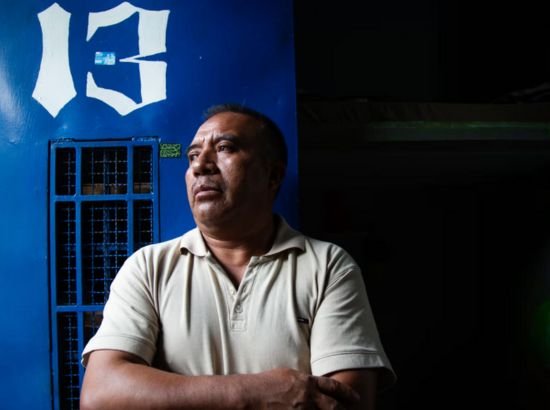
Pablo López Alavez’s 30-year sentence has been condemned by the UN and human rights groups as part of a disturbing trend targeting Indigenous environmental defenders in Mexico.
In a modest prison room in Villa de Etla, Oaxaca—part classroom, part library—Pablo López Alavez quietly marks each day of a sentence he insists is unjust. Now 56, the Indigenous environmental activist has spent over 14 years imprisoned, accused of a double homicide tied to a decades-old land dispute. He still has nearly 15 years to go.
The United Nations has condemned his incarceration as “arbitrary,” while human rights groups argue he is being punished not for a crime, but for his long-standing opposition to illegal logging on Indigenous land.
López Alavez, a member of the Zapotec community of San Isidro Aloápam, led efforts for over 20 years to halt deforestation in nearby forests shared with San Miguel Aloápam. These forests—rich in biodiversity and critical to the community’s water supply—were central to a bitter land dispute dating back to the 1980s.
Tensions boiled over in 2007, when two people from San Miguel were killed. In the aftermath, arrests began targeting San Isidro residents, escalating the conflict into criminal territory.
López Alavez says he was abducted in 2010 while driving with his wife and grandchild. Armed masked men intercepted his vehicle and dragged him to a field near San Miguel. There, he was threatened with death before being handed over to police, who accused him of the 2007 murders.
Despite witnesses confirming he was working in a community eight hours away on the day of the killings, and despite documented inconsistencies in the prosecution’s case, López Alavez was convicted and sentenced to 30 years in 2017. A retrial in 2020 upheld the same outcome.
The UN Human Rights Office has pointed to due process violations and a lack of consideration for key defense evidence. They argue that López Alavez’s arrest was politically motivated, driven by his activism.
Human rights groups see his case as part of a broader campaign against environmental defenders in Mexico—particularly those from Indigenous communities who resist extractive industries and land exploitation.
In prison, López Alavez builds furniture to help support his family. His children dropped out of school to contribute financially. His wife, who spoke no Spanish before his arrest, now navigates life in a city, constantly under stress—and sometimes under threat.
“They broke my family,” López Alavez says, eyes filling with tears as he removes his glasses. “The punishment hasn’t just been for me—it’s for all of us.”
Despite multiple setbacks, López Alavez plans to continue appealing his case. If state courts fail him again, he says he’ll seek federal review, hopeful that national judges will be less influenced by local power dynamics.
He has also called directly on Mexico’s president, Claudia Sheinbaum, and her party, Morena, to stand by their promises to Indigenous communities.
“They say change is coming. I want to see that change,” López Alavez says. “I ask the president to hear the voice of a Zapotec who’s spent 14 years, 7 months and 25 days in prison for something he didn’t do.”